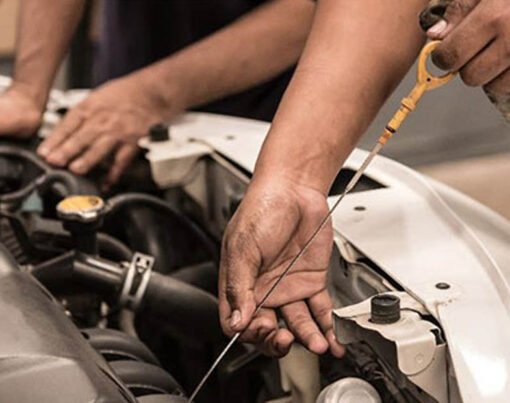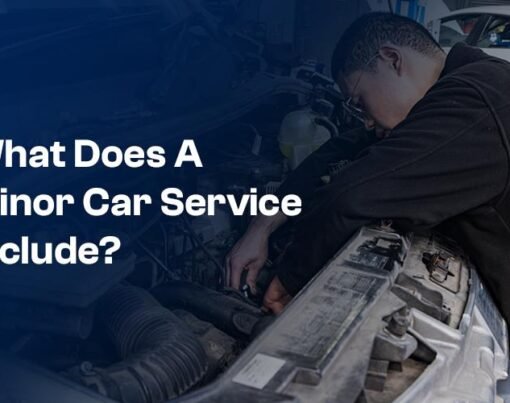You will notice small brake caliper pistons in your braking system. The small size may lead you to think they are not that vital component of your car, but don’t underestimate it! These small pistons play a significant role in slowing down your vehicle and, therefore, help the overall braking system.
There can be different brake caliper pistons- phenolic, metal, or steel. Most people use phenolic calipers or metal calipers in their cars.
If you are curious between phenolic piston vs metal- the main contrast is that a phenolic piston is made using phenolic plastic, and a metal piston is made of Aluminum. You will get strength, heat-resistance from a phenolic piston, whereas metal ones give low thickness, weight, and high reliability.
We have gathered plenty of more information for you. So, let’s move on to the details to know all about the pistons and how you can get the right one!
Table of Contents
Phenolic Piston Vs Metal: All The Differences
Before we move on to the comparison, let’s have a brief idea of what each of these two means individually. It will help you to understand your preferences better.
But, Firstly, What Are Caliper Pistons?
If you don’t already know, the caliper pistons are a part of your braking system that helps your car stop when necessary. The pistons force your car’s brake pads to reach the brake rotor when you press the brake paddles to stop or slow down your vehicle.
The brake fluid comes out from the master cylinder through the brake pipes and goes into the calipers. Therefore it takes out the pistons behind the brake pad and lets the pads contact discs slow or stop the car.
What Is Phenolic Piston?
The phenolic piston is a type of caliper piston made with phenolic plastic. Mainly, the plastic here is a composite resin material that is incredibly strong and offers superior heat resistance. The resin is combined with phenol and aldehyde, making the piston suitable for your braking system.
What Is Metal Piston?
The metal piston is usually made out of Aluminum. Sometimes it can be made out of low carbon steel as well. As Aluminum is very lightweight, these pistons offer lightweight and high heat conductivity. These pistons’ quality, vibration, and friction handling capability are outstanding.
Phenolic Piston Vs Metal: Comparison To Look For
| Features | Phenolic Piston | Metal Piston |
| Material | Phenolic Plastic | Aluminum, Low Carbon Steel |
| Strength | Very Strong | Strong Enough To Take Heavy Loads |
| Weight | Quite High In Weight | Less Weight |
| Heat Resistance | Better | Average |
| Rust Resistance | Rust-Resistant Material | Don’t Provide Rust Resistance |
| Capacity | Cannot Take Heavy Loads | Can Deal With Heavy Loads |
| Cost | More Cost-Effective | Less Cost-Effective |
| Longevity | Less Durable | More Durable |
| Preferred Usage | Best For Daily Usages | Best For Racing Cars, Carrying Heavy Loads |
Now let’s see more explanation of the comparison for a better understanding:
Material: the first difference is in the field of materials. As we stated before, the phenolic ones are made from Phenolic plastic, and the metal ones are built out of mostly Aluminum or low carbon steel.
Strength: In this case, the phenolic piston offers quite an impressive solidity. But you can’t flawlessly use it for heavy loads. On the contrary, metal pistons will help you in your heavy loads with the perfect strength.
Weight: as for the material usage, the phenolic pistons are heavier in weight than metal ones. As Aluminum is a light compound, it makes the components light as well which is suitable for the vehicle.
Heat resistance: phenolic piston provides better heat resistance than metal pistons. You will have fewer surface cracks reasoned by thermal shock due to thermal exposure if you use a phenolic piston. But the possibility is not outlandish as, over time, the pistons seem to wear down.
Rust resistance: once again, the phenolic pistons will give you rust resistance as the material is phenolic plastic. On the other side, metal pistons are more likely to get affected by rust and corrosion if they come into contact with liquid.
Capacity and performance: Both pistons are good in performance, so the decision relies on you. However, metal pistons handle heavier loads better than phenolic pistons in terms of capacity.
Cost: phenolic pistons are suitable for regular use as they come at a lower price. So if you have price issues, this will be a good shot. However, metal pistons cost more because of the manufacturing process and the material.
Verdict:
At this phase, according to the dissections of Motopickers, we can say that both pistons offer excellent service. But if you want to use the piston for regular usage, phenolic pistons will be good for you as most people prefer these for daily usage.
In contrast, if you have racing intentions or a tendency for heavy usage, you can pick metal ones. The price may be pretty high, but it is all worth it if we look at the advantages.
Why Should You Choose A Phenolic Piston?
Phenolic pistons are excellent for your daily usage. Even though they cost less, they offer incredible strength, and you can efficiently run the extra miles without needing a change or remanufactured caliper.
Most current vehicles use phenolic these days as they offer quality service. Besides, the better cooling and rust resistance is worth appreciating. They also provide fantastic durability, so your daily rides won’t be troublesome anymore.
However, phenolic is not suitable for heavy brake use. So if you want to haul loads, you might not like the service offered by it. Phenolic pistons are a wise decision for cars and light-duty trucks.
Why Should You Choose A Metal Piston?
When you want to ride a racing car or use a truck for heavy hauling, metal pistons are the right choice. These are meant for heavy loads. These calipers are easy to rebuild, and you can do it all by yourself.
Metal pistons also decrease brake fade. However, you might notice quick rust and corrosion if you don’t maintain these pistons properly. They require well-maintenance to go the extra mile. But if you can maintain them properly, you can expect good durability.
How Do You Properly Maintain A Caliper’s Piston?
If you want good durability out of the pistons, you must take good care of those regardless of whichever you use. Especially if you use metal pistons, well-maintenance is a must to keep those in good fitness.
So here are a few tips for maintaining the caliper pistons:
- If you try to replace the brake pads, it’s better to lubricate them to get the best out of them.
- Periodically clean around the pistons if they feel stuck, as eventual dirt can accumulate inside and make the pistons bind together.
- If the pins fail to move at times, use lubricants to make them move smoothly.
Lubricants are the best way to ensure the smooth movement of the pistons. At this moment, you can use Permatex 85188 Ultra Disc Brake Caliper Lube to get the best outcome.
More To Know About The Pistons:
Is Phenolic A Metal?
No, phenolic is plastic made out of phenolic resin. This material is made out of phenol and aldehyde. The mechanism delivers incredible strength in the pistons and offers extended durability.
Do Phenolic Brake Pistons Absorb Moisture?
The corrosion rate in phenolic brake pistons is less likely than in metal ones. But they can still absorb moisture. But that doesn’t affect the braking system as long as you take proper care of them.
Are Phenolic Caliper Pistons Good?
Yes, phenolic pistons are a fantastic choice for your regular usage in many ways. But these are not suitable for heavy hauling or loads. They also stand out in terms of durability and performance.
Can You Replace The Piston In The Brake Caliper?
Yes, you can. You can easily replace the piston without removing the whole assembly if you buy a brake caliper repair kit. The kt included a brand new piston which will serve your purpose and save your money on purchasing a new assembly.
What Causes Caliper Pistons To Break?
As the driver’s foot presses the brake pedal, the force goes from the master cylinder directly to the caliper. Mainly the pistons break due to corrosion or swelling. Sometimes a brake fluid leak can also cause breakage in pistons.
We Are All Caught Up Now!
So by now, you know every little detail about phenolic piston vs metal, starting from the differences in maintenance. As a verdict, we must say that both pistons are fantastic in terms of performance.
Therefore, you have to look for your usage preference to pick one. So, if you want something for daily usage at a cheaper rate, a phenolic piston will serve you the best. And in case of heavy hauling and racing, you should choose the metal pistons.










